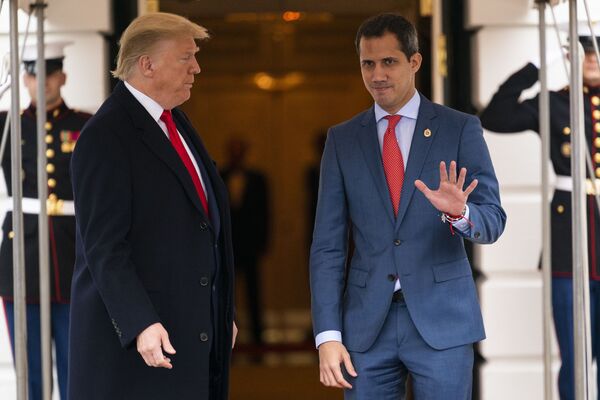Douglas Macgregor, a retired US Army colonel hired to assist acting Defense Secretary Christopher Miller, has been on record attacking US officials including Secretary of State Mike Pompeo, Senator Lindsey Graham and former National Security adviser John Bolton for their alleged willingness to take cash from Israeli and Gulf State lobbyists, and is a fierce critic of the US policy of regime-change wars.
“You have to look at the people that donate to those individuals,” Macgregor said in a September 2019 interview with YouTuber David Gornoski, referring to Bolton and Graham. “Mr Bolton has become very, very rich and is in the position he’s in because of his unconditional support for the Israeli lobby. He is their man on the ground, in the White House,” Macgregor suggested, adding that “the same is largely true of Mr Pompeo.”
“He has his hands out for money from the Israeli lobby, the Saudis and others,” the retired officer added.
AIPAC Power
In 2012, Macgregor told RT that he believed that the American Israel Public Affairs Committee (AIPAC) and its affiliates had “cultivated an enormous influence in power in Congress,” and this influence makes lawmakers more willing to support US military action against Iran.
The retired officer's criticism of the Israeli lobby has been picked up by CNN, as well as several Israeli newspapers.

Advocate of Bringing Troops Home
Macgregor has also been a major advocate for withdrawing US forces from many of its overseas wars, repeatedly appearing on Fox News host Tucker Carlson’s show in 2018 and 2019 to support the President’s plans to get out of Syria, and more recently calling for US forces to come home from Afghanistan.
In 2015, Macgregor blasted the Obama administration’s funding of rebel fighters in Syria, telling Sputnik that “the notion of ‘moderate’ Sunni Muslim Arabs obedient to Washington’s demands is an illusion.”
He has also expressed opposition to Washington’s effort to implement regime change in Venezuela, and more broadly, has criticised US nation-building.
“The notion that you can go in and impose your notions of societal organisation and political structure on another population in a foreign country is absurd. And that’s inevitably what’s behind the intervention, because the notion is that if we can’t convert it into a facsimile of ourselves, we can’t control it. We’re not going to be able to do that in Venezuela, and we should not try,” Macgregor said in his 2019 interview with Gornoski.

After Trump was elected President in 2016, Macgregor supported his promise to relinquish America's role as the world's policeman, but warned that both the neoconservatives and the neoliberal left would come after Trump and try to take him down.
In 2018, Macgregor advised Trump to sack his entire national security apparatus, including the Pentagon and the National Security Council, and implement his new defence policies, saying a “clean sweep” was needed to get rid of the ‘reactionary’ ‘anti-Trump’ officials.
Before he was appointed to his new role, Macgregor had been nominated by Trump to take over as US ambassador to Germany in July, but his nomination was stalled and ultimately rejected by the Senate over his criticism of Germany’s openness to immigration from Muslim countries, and his support for a harsh border policy on the US-Mexico frontier.
He was also reportedly considered for the post of national security director after Trump sacked Bolton in September 2019.

Macgregor received a doctorate in international relations from West Point. He commanded a unit of dozens of tanks and Bradley fighting vehicles in the Battle of 73 Easting, a major tank battle against Iraqi Republican Guard forces in the 1991 Gulf War. In the post-Cold War period, he became a proponent for the reorganisation of US Army ground forces.
His role assisting the new acting secretary of defence is not yet entirely clear, with the Pentagon telling Axios that the officer’s “decades of military experience will be used to assist in the continued implementation of the President’s national security priorities".
Macgregor hasn’t always expressed anti-interventionist sentiments. In 1999, he served as a top planner for General Wesley Clark’s 78-day aerial bombardment of Yugoslavia. In 2003, he expressed support for George W Bush’s Iraq War. In 2008 he revised his thinking, co-authoring a book in which he argued that the US interventions in Iraq and Afghanistan had “produced very serious and negative consequences for American national-security interests.” In 2014 he also revised his sentiments on the NATO operation in Yugoslavia, accusing the US government of putting “a Muslim drug mafia in charge” of the Kosovo breakaway.


